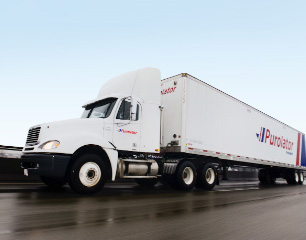Blog
Is Your Logistics Provider Hurting Your Brand?

When a Bellevue, Washington consumer’s shipment failed to arrive on the scheduled day, she did what many consumers would do and called the retailer’s – a nationally recognized chain – customer service center and demanded an explanation. And despite being told that the shipment was in the hands of the delivery company, this customer placed the blame squarely with the retailer, and vowed never to shop there again.
Is this fair? Should a retailer bear responsibility for a delivery company’s inability to deliver a product on time?
Fair or not, this is pretty much the rule of the road in today’s customer-centric retail environment. Research by Accentureglobal consultants found that of the 69 percent of consumers who said they had ordered an online product that did not arrive on time, 63 percent said the poor experience had influenced future shopping with that company, with nearly 25 percent saying they never directly ordered from that company again.
U.K.-based customer service expert Martin Lewis says this is because consumers enter into a “contract” with retailers, which includes the expectation that the retailer will choose a capable and experienced delivery company. Selecting a transportation company not up to the task is seen as a violation of that contract. Lewis says that a late or botched delivery is “one of the quickest ways to destroy your brand.”
Poor customer service absolutely comes at a high cost. By one estimate, the price is over $40 billion, as ill-served customers simply opt to make their purchases elsewhere. That’s $40 billion in sales that could be protected, if retailers simply took steps necessary to ensure customers satisfaction.
Customer service expectations extend to the final delivery stages, where a shipment either arrives on-time and undamaged, or it doesn’t. In addition, retailers are also judged based on their omni-channel capabilities. How quickly can an online order be ready for an in-store pickup? Can a consumer switch a delivery location at the 11th hour? How painless is a retailer’s returns policy? And perhaps most important – is my current logistics company helping me fulfill promises to my customers?
Each of these questions should be at the forefront of a retailer’s customer service priorities. A new white paper from Purolator International, “The High Cost of Poor Customer Service,” delves into the complicated – and changing – world of customer expectations, and offers insight about how retailer’s can meet these challenges.
Good customer service is a competitive differentiator. Customers are keenly aware of every aspect of a retailer’s performance, and will reward a business that goes the extra mile to satisfy its customers.
Please click here to download a complimentary copy of Purolator International’s new white paper.